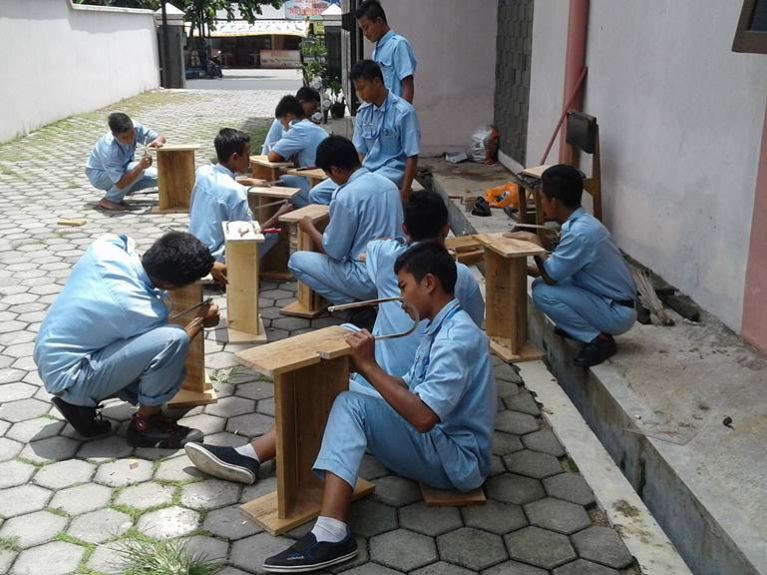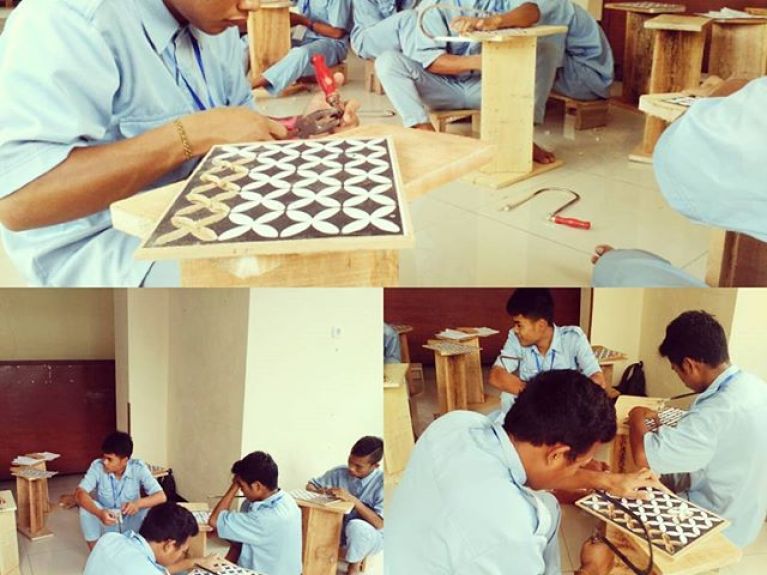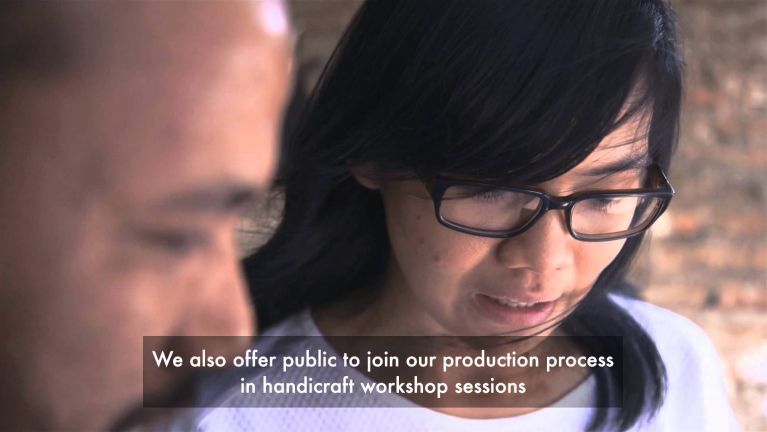Timba, Community Makerspace, Indonesia
Timba plan to build community makerspace where traditional artisan and vocational high school student can learn various hardskill mastery and creating product from waste.

Project name: Timba, Community Makerspace
Project location: Kabupaten Banjarnegara, Jawa Tengah, Indonesia
Website: http://www.kitatimba.com/
Facebook: https://www.facebook.com/kitatimba/
Instagram: https://www.instagram.com/kitatimba/
Dieses YouTube-Video kann in einem neuen Tab abgespielt werden
YouTube öffnenThird party content
We use YouTube to embed content that may collect data about your activity. Please review the details and accept the service to see this content.
Open consent formProject description:
Timba plan to build community makerspace where traditional artisan and vocational high school student can learn various hardskill mastery and creating product from waste. We targeting local community in Banjarnegara region in Central Java, and addressing three challenges commonly happen in Indonesia's rural area:
1. Equal opportunity and skill development for rural youth.
Banjarnegara produce about 7,000 vocational student graduate every year. 80% of them looking for more opportunities by move to big cities or become migrant worker. Since they have limited skill and education, most of them ended up become "dirty-handed" labor and earn low wage. And the rest, who unable to compete will get back to the hometown unemployed.
2. Economic development for marginalized community, especially traditional artisan and craftsman
Industrialization and rapid technology development also left traditional artisan community behind. Sucking all economic resources centralized in big cities, and left rural and traditional communities marginalized. They unable to compete with mass production and cheap imported product. Innovation and regeneration also leads this community into extinction.
3. Utilize local waste for area without proper waste management facility.
No waste processing facilities in rural area also brings more impact to rural environment. People still process their waste in traditional way, burning or dump into landfill.
WE PLAN TO CREATE ACTIVITIES THAT SOLVING THIS CHALLENGES.
We will equip the spaces with power tools, sewing machine, 3D printer, CNC and Laser cutting machine that will encourage people to have MAKING ABILITY.
Our makerspaces will train vocational student with various skill like woodworking, metal work, sewing, 3D design, sewing, and self development in collaboration with traditional artisan.
We will develop incubation program that involve traditional artisan and vocational student to create product and build business. The program will connect them with professional, such as designers, programmer, marketer, and more young professional to develop their skill and knowledge.
We believe that MAKING ABILITY will help youth and artisan to get more knowledge and opportunity to compete with today's condition.

Goal and purpose of the project
Goals:
Improve rural economy by human resource capacity improvement (local youth and traditional community) through skill training and self-development program.
Purpose:
- Encourage local youth to master hardskill and self improvement to prepare on competition.
- Improve and create innovation within traditional artisan and communities in rural area
- Creating more economic and environmental benefit by optimize local waste
Motivation of the applicant / applicant team:
We already started our project in rural development. Currently, we have these partners:
- We already engage with 15 traditional artisan and craftman that regularly received customer order (Skill)
- We are currently started to develop in community scale and already engaged with 4 villages in Banjarnegara (People)
- 4 villages have really huge potential on agricultural waste (Material)
- We engaged with 48 young professionals and expert in various fields, mostly in design and business (Knowledge)
We see that our momentum is already come, and we want to create bigger impact. Timba need more people who have capabilities and knowledge to manage these resources and create optimum benefit, either to organization, or to the community. This funding will accelerate our progress and scaling up our impact. It will become our success piloting and showcase. And we expect to apply the similar model into different rural or marginalized area.
Use of prize money:
Our makerspace already have many equipment and powertools to support our workshop and training. To scale it up and reach broader beneficiaries, we will use the prize for bringing in small 3D printer, CNC, and laser cutting machine for advance hardskill training. Either for youth and artisan. We expect that by connecting local youth and traditional artisan with advance technology will encourage them to innovate.
But, most part of prize money will be used for develop incubation program and sustaining our activities. In first batch, we plan to have accelerator program for 20 youth and artisan for 6 months. The money also will be used to do research in product development using furniture industry waste, fashion industry waste, and agricultural industry waste, especially banana trunks.
For other facilities, we already create MoU with local municipality in Banjarnegara to use any available public infrastructure to support our program. Including Agricultural laboratorioum, Food Processing Laboratorium, and Heavy machinery training center.
